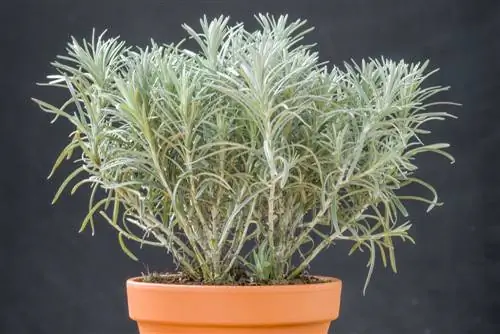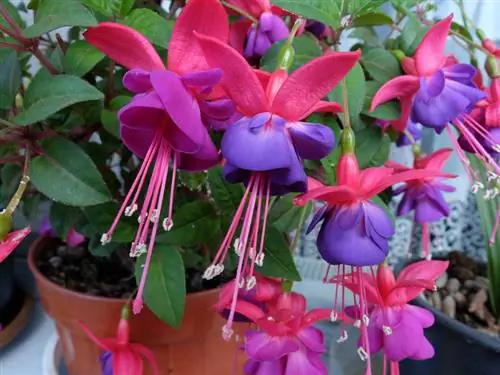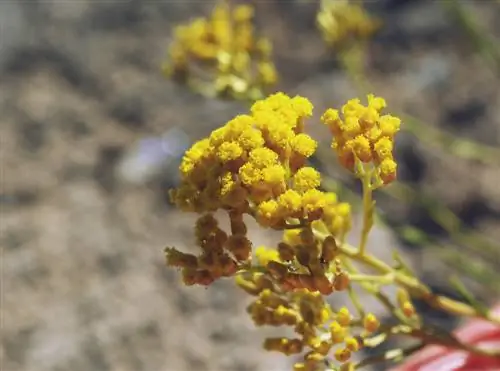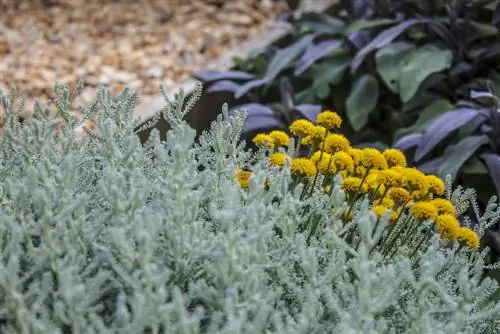- Author admin leonars@hobbygardeners.com.
- Public 2023-12-16 16:46.
- Last modified 2025-01-23 11:22.
The easy-care curry herb is considered a perennial. The subshrub originally comes from the Mediterranean region and prefers a corresponding climate. With good care, you can enjoy this pleasantly scented herb with silvery leaves for many years.
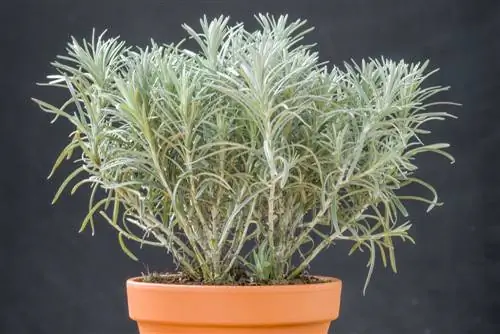
How should you care for curry herb in winter?
In order to overwinter curry herb successfully, it should be in a bright and frost-free place at around + 10°C. Older plants can tolerate frost down to -10°C, while young plants are sensitive to frost. Water little in winter and avoid fertilization.
How much frost can curry herb tolerate?
Curry herb can at least be described as partially hardy because it can withstand cold temperatures down to around -10 °C. However, this only applies to older plants. Young curry herb is very sensitive to frost. Therefore it should not be planted in the garden in front of the Ice Saints.
Where and how does curry herb overwinter best?
The easy-care curry herb needs little water and only a few nutrients all year round. Therefore, it should not be fertilized, especially not in winter. Older plants may be able to tolerate a small amount of fertilizer in the spring. Curry herb is watered little to moderately. It shouldn't dry out, but it tolerates moisture extremely poorly.
The best way to get your curry herb through the winter is to overwinter it frost-free at around + 10 °C in a bright place. Then you can often harvest the herb well into the winter. In darkness and/or excessive heat, horny shoots (thin, long, weak shoots with no or only a few leaves) can easily develop.
The most important things in brief:
- older plants are conditionally hardy
- Young plants very sensitive to frost
- can tolerate frost down to around -10 °C
- ideal temperature for wintering: around + 10 °C
- water little all year round
- Do not fertilize in winter
Tip
If you live in a harsh area, it is better to overwinter your curry herb in a frost-free and bright place to be on the safe side.

